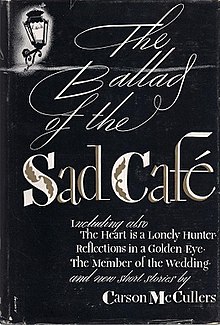Cecil Antonio Richardson was an English theatre and film director, producer and screenwriter, whose career spanned five decades. He was identified with the "angry young men" group of British directors and playwrights during the 1950s, and was later a key figure in the British New Wave filmmaking movement.

Edward Franklin Albee III was an American playwright known for works such as The Zoo Story (1958), The Sandbox (1959), Who's Afraid of Virginia Woolf? (1962), A Delicate Balance (1966), and Three Tall Women (1994). Some critics have argued that some of his work constitutes an American variant of what Martin Esslin identified as and named the Theater of the Absurd. Three of his plays won the Pulitzer Prize for Drama and two of his other works won the Tony Award for Best Play.

Dame Vanessa Redgrave is an English actress. Throughout her career spanning over six decades, Redgrave has garnered numerous accolades, including an Academy Award, a Tony Award, two Primetime Emmy Awards and an Olivier Award, making her one of the few performers to achieve the Triple Crown of Acting. She has also received various honorary awards, including the BAFTA Fellowship Award, the Golden Lion Honorary Award, and an induction into the American Theatre Hall of Fame.

The Member of the Wedding is a 1946 novel by Southern writer Carson McCullers. It took McCullers five years to complete, although she interrupted the work for a few months to write the novella The Ballad of the Sad Café.
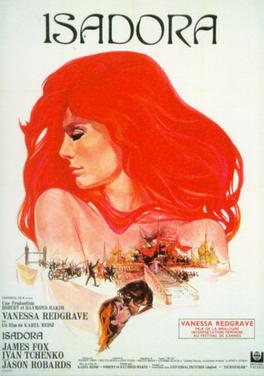
Isadora is a 1968 biographical drama film directed by Karel Reisz from a screenplay written by Melvyn Bragg, Margaret Drabble, and Clive Exton adapted from the books My Life by Isadora Duncan and Isadora, an Intimate Portrait by Sewell Stokes. The film follows the life of American pioneering modern contemporary dance artist and choreographer Isadora Duncan, who performed to great acclaim throughout the US and Europe during the 19th century. A co-production between the United Kingdom and France, it stars Vanessa Redgrave as Duncan and also features James Fox, Jason Robards, and John Fraser in supporting roles.

Carson McCullers was an American novelist, short-story writer, playwright, essayist, and poet. Her first novel, The Heart Is a Lonely Hunter (1940), explores the spiritual isolation of misfits and outcasts in a small town of the Southern United States. Her other novels have similar themes. Most are set in the Deep South.
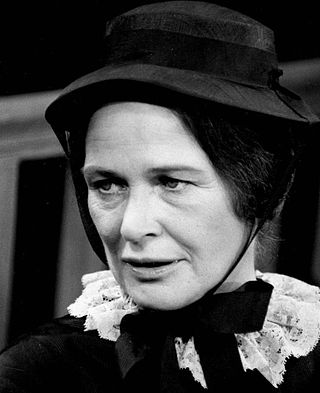
Colleen Rose Dewhurst was a Canadian-American actress mostly known for theatre roles. She was a renowned interpreter of the works of Eugene O'Neill on the stage, and her career also encompassed film, early dramas on live television, and performances in Joseph Papp's New York Shakespeare Festival. One of her last roles was playing Marilla Cuthbert in the Kevin Sullivan television adaptations of the Anne of Green Gables series and her reprisal of the role in the subsequent TV series Road to Avonlea. In the United States, Dewhurst won two Tony Awards and four Emmy Awards for her stage and television work. In addition to other Canadian honors over the years, Dewhurst won two Gemini Awards for her portrayal of Marilla Cuthbert; once in 1986 and again in 1988. It is arguably her best known role because of the Kevin Sullivan produced series’ continuing popularity and also the initial co-production by the CBC; allowing for rebroadcasts over the years on it, and also on PBS in the United States. The initial broadcast alone was seen by millions of viewers.
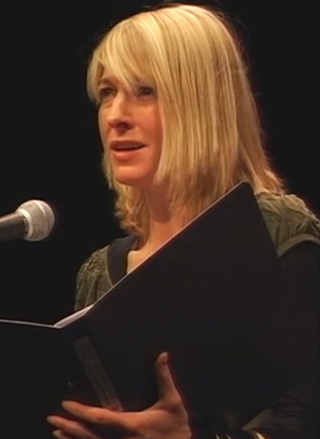
Jemima Rebecca "Jemma" Redgrave is a British actress, and a member of the Redgrave family. She is known for her roles as the title character in Bramwell (1995–1998) and as Kate Lethbridge-Stewart in Doctor Who and its upcoming spin-off, The War Between the Land and the Sea. As well as a career in television, she has appeared in many stage productions and on film, including her portrayal of Evie Wilcox in the Merchant Ivory film Howards End.

Bagdad Cafe is a 1987 English-language West German film directed by Percy Adlon. It is a comedy-drama set in a remote truck stop and motel in the Mojave Desert in the U.S. state of California. Inspired by Carson McCullers' novella The Ballad of the Sad Café (1951), the film centers on two women who have recently separated from their husbands, and the blossoming friendship that ensues. It runs 95 minutes in the U.S. and 108 minutes in the German version. The song "Calling You", sung by Jevetta Steele and written by Bob Telson, was nominated for the Academy Award for Best Original Song at the 61st Academy Awards.

The Truth About Forever is a novel by Sarah Dessen. It's her sixth novel and was published in hardcover on May 11, 2004, and in paperback on April 6, 2006.

Nancy Anne Parsons was an American actress.

The Aspern Papers is a novella by American writer Henry James, originally published in The Atlantic Monthly in 1888, with its first book publication later in the same year. One of James's best-known and most acclaimed longer tales, The Aspern Papers is based on the letters Percy Bysshe Shelley wrote to Mary Shelley's stepsister, Claire Clairmont, who saved them until she died. Set in Venice, The Aspern Papers demonstrates James's ability to generate suspense while never neglecting the development of his characters.
Gretchen Oehler was an American actress, most recognized for her long-running role as Vivien Gorrow on the soap operas Another World and Texas.
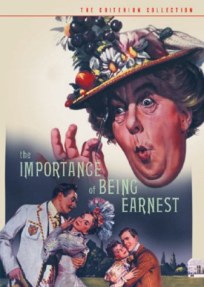
The Importance of Being Earnest is a 1952 British comedy-drama film adaptation of the 1895 play by Oscar Wilde. It was directed by Anthony Asquith, who also adapted the screenplay, and was produced by Anthony Asquith, Teddy Baird, and Earl St. John.

The Man Who Broke the Bank at Monte Carlo is a 1935 American romantic comedy film made by 20th Century Fox. It was directed by Stephen Roberts, and starred Ronald Colman, Joan Bennett, and Colin Clive. The screenplay was written by Nunnally Johnson and Howard Smith, based on a play by Ilya Surgutchoff and Frederick Albert Swan. The film was inspired by the song of the same name popularised by Charles Coborn.
Carl "Cork" Hubbert was an American film and television actor.
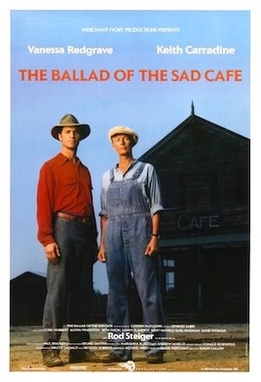
The Ballad of the Sad Café is a 1991 Southern Gothic drama film directed by Simon Callow in his directorial debut, and starring Vanessa Redgrave, Keith Carradine, and Rod Steiger. Its plot follows Amelia, a moonshiner in rural 1930s Georgia whose lonely life is interrupted by the arrival of two men: First, her long-lost cousin, and later, her former husband recently released from prison.
